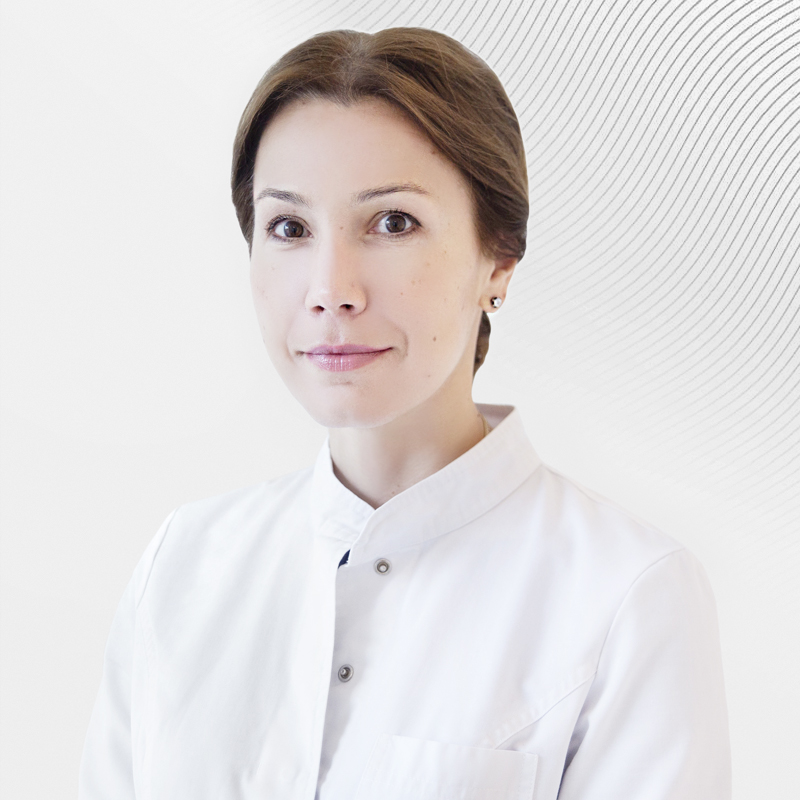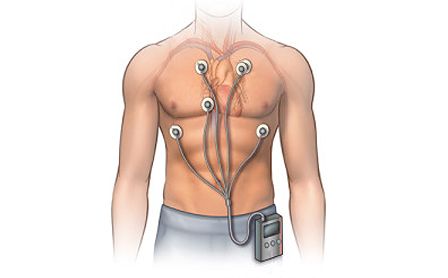 Holter monitoring, or daily recording of an electrocardiogram, is a method of instrumental diagnostics proposed by American scientist Norman Holter. The method involves non-stop ECG recording for a day or more, depending on the indications.
Holter monitoring, or daily recording of an electrocardiogram, is a method of instrumental diagnostics proposed by American scientist Norman Holter. The method involves non-stop ECG recording for a day or more, depending on the indications.
Long-term ECG monitoring (Holter)
 Holter monitoring, or daily recording of an electrocardiogram, is a method of instrumental diagnostics proposed by American scientist Norman Holter. The method involves non-stop ECG recording for a day or more, depending on the indications.
Holter monitoring, or daily recording of an electrocardiogram, is a method of instrumental diagnostics proposed by American scientist Norman Holter. The method involves non-stop ECG recording for a day or more, depending on the indications.
The electrocardiogram is recorded with a portable recorder, which the patient should wear for the entire study period. The recorder is usually attached to a belt or worn on a shoulder strap.
Indications for Holter monitoring
The indications for the study are:
- any type of cardiac rhythm and conduction disorders;
- patient's complaints about palpitations or heart failure;
- vague loss of consciousness;
- monitoring the functioning of the pacemaker; a painless form of coronary heart disease (the data obtained during Holter monitoring cannot be the only criterion for the diagnosis of coronary heart disease).
Holter monitoring, even if it is performed for several days, does not have a high negative predictive value. This means that if during the monitoring a certain phenomenon was not identified, and this type of diagnosis was suspected, the data obtained cannot be interpreted as the absence of this phenomenon.
How is holter monitoring performed
Holter monitoring assumes that the patient follows the usual daily routine. This means that a person works, walks, and relaxes according to their usual lifestyle. In addition to recording an ECG, the patient independently keeps a diary, where he notes the time of the appearance of unpleasant sensations from the cardiovascular system, as well as the time of taking medications and changing the physical activity regime. Holter monitoring does not involve reducing stress, meaning it is advisable for the patient to perform routine household tasks.
ECG decoding
The analysis of the recorded electrocardiogram is performed on decoders, the role of which is most often performed by a computer with the appropriate software. Modern Holter monitoring devices are able to automatically perform the primary classification of the data recorded during the study, which subsequently simplifies and speeds up the process of decoding the ECG by a doctor. At the same time, no algorithm for automatic analysis of electrocardiograms is perfect, and therefore each record is necessarily analyzed and corrected by a doctor.
Get help
Specify your contacts and we will contact you to clarify the details.
Doctors
.jpg)
Plakhova Victoria
Doctor of Medicine
-
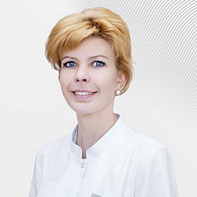
Anikeva Evgeniya
Head of the Hospital of the Department of Cardiology and X-ray Endovascular Methods of Diagnosis and Treatment
-
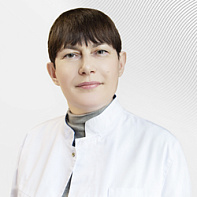
Burakova Natalya
Doctor of the highest category, Doctor of the highest category
-
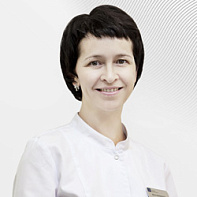
Dyagileva Mariya
Doctor of the highest category
-

Ignateva Oksana
Head of the Heart and Vascular Clinic, Ph.D. of Medical Sciences
-
Plakhova Victoria
Doctor of Medicine
- Currently, he is the Head of the Ultrasound Diagnostics Department at the National Research and Practical Center for Cardiovascular Surgery named after Bakuleva" Ministry of Health of the Russian Federation
- Graduated from the Russian State Medical University with a degree in Medical Science
- She completed her academic residency in Cardiology at the A.N. Bakulev Scientific Center for Cardiovascular Surgery of the Russian Academy of Medical Sciences
Total experience
29 years
Experience in EMC
since 2017
